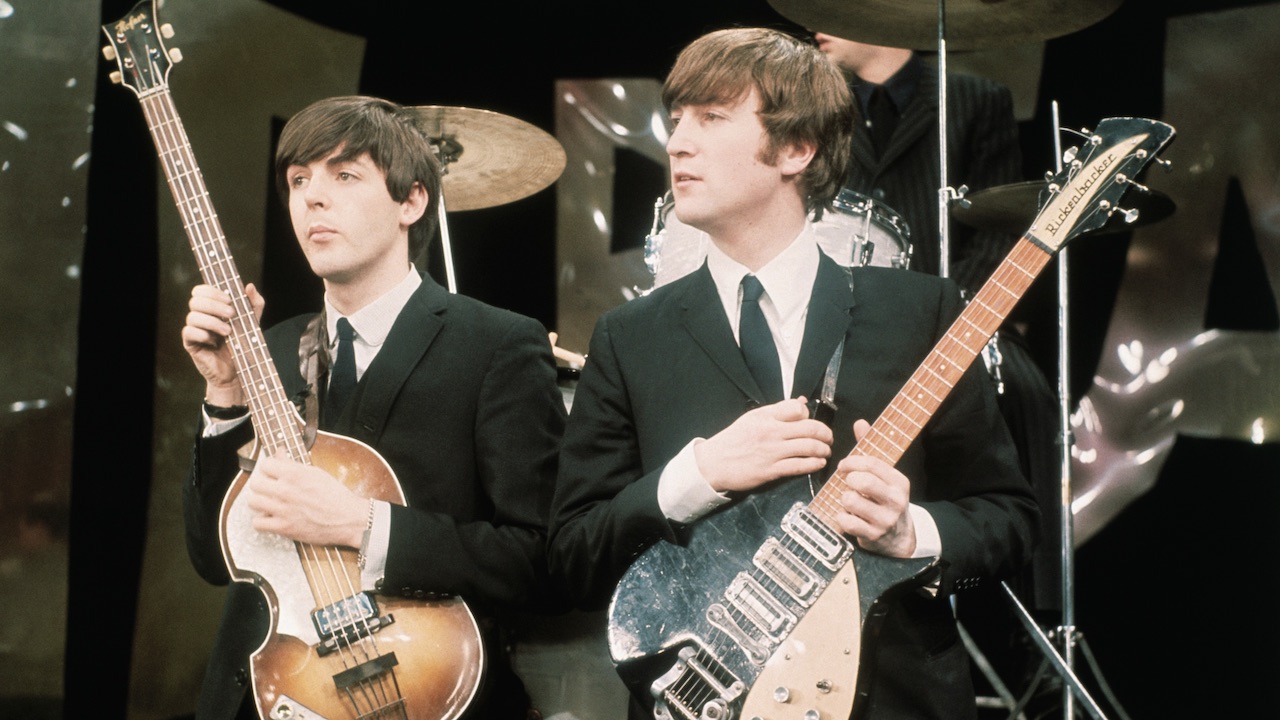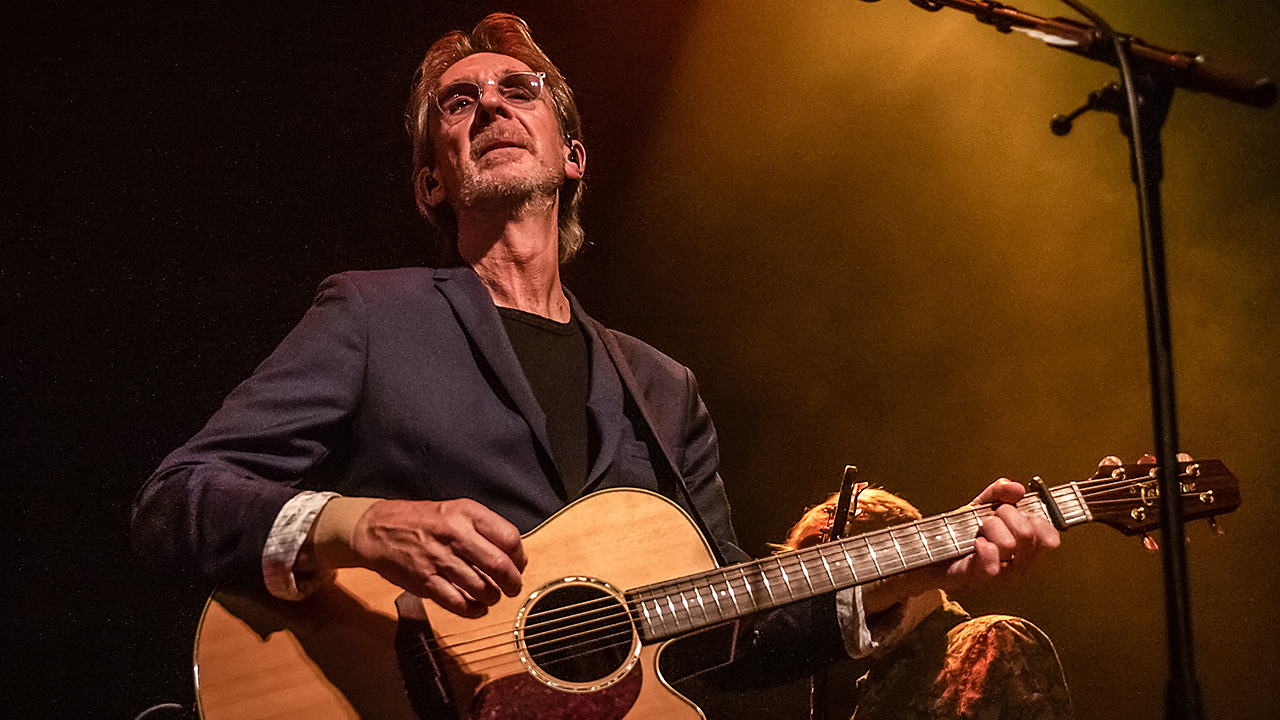"John made himself out to be the big working-class hero: he was the least working-class in the group." In 1984, revisiting his work with The Beatles, Paul McCartney shed new light on his relationship with John Lennon in his most revealing interviews ever
"If you ever got a speck of praise from John, a crumb of it, you were quite grateful." Paul McCartney on John Lennon

Select the newsletters you’d like to receive. Then, add your email to sign up.
You are now subscribed
Your newsletter sign-up was successful
Want to add more newsletters?

Every Friday
Louder
Louder’s weekly newsletter is jam-packed with the team’s personal highlights from the last seven days, including features, breaking news, reviews and tons of juicy exclusives from the world of alternative music.

Every Friday
Classic Rock
The Classic Rock newsletter is an essential read for the discerning rock fan. Every week we bring you the news, reviews and the very best features and interviews from our extensive archive. Written by rock fans for rock fans.

Every Friday
Metal Hammer
For the last four decades Metal Hammer has been the world’s greatest metal magazine. Created by metalheads for metalheads, ‘Hammer takes you behind the scenes, closer to the action, and nearer to the bands that you love the most.

Every Friday
Prog
The Prog newsletter brings you the very best of Prog Magazine and our website, every Friday. We'll deliver you the very latest news from the Prog universe, informative features and archive material from Prog’s impressive vault.
In 1984, Paul McCartney released his fifth solo album, Give My Regards to Broad Street, the soundtrack to the film of the same name. Fourteen years on from the break-up of The Beatles, the album saw McCartney revisit some of his best-loved work with John Lennon, with reinterpretations of classic songs such as Yesterday (from Help!), Eleanor Rigby (from Revolver) and The Long And Winding Road (from Let It Be). Naturally, while promoting the album with interviews with the world's media, McCartney was often asked about his friendship with Lennon, and, four years on from Lennon's murder, he shared memories of his late friend which shed light on their relationship as never before.
"These are like psychiatrists' questions, I'm trying to work them out for myself," he told the Washington Post's Richard Harrington at one point.
Harrington had asked McCartney if he resented the popular conventional categorisation of the two Beatles - "one raw, driven, deep; the other romantic, sweet, flippant".
"My character comes out more flippant," McCartney acknowledged, "but I know it isn't. I know. I used to talk to John. He was no more deep than I am. We were equally flippant.
"If you look at John's upbringing and my upbringing, mine made me into a very different kind of person," he continued. "My upbringing was very warm, a very comfortable childhood, not a rich upbringing. His family was richer than mine, nobody knows that. John made himself out to be the big working-class hero—he was the least working-class in the group.
"John's father left home when he was three, John went to live with his aunt and uncle, the uncle died; the kid's got to be starting to think, 'It's my fault'. John's mother lived with a waiter that he didn't really approve of - and in those days that really wasn't clever for your mum to be living in sin. John had all of this shit going down... He had all these personal problems and he learned to create a shell, so that if anyone came at him with something, he'd just say piss off, I'll hit you. That comes of insecurity."
In a Playboy magazine interview conducted around the same time, McCartney reflected on the fact that both he and Lennon lost their mothers while in their mid-teens,
"Actually, that was one of the things that brought John and me very close together," he recalled. " Our way of facing it at that age was to laugh at it - not in our hearts, but on the surface. It was sort of a wink thing between us. When someone would say, 'How's your mother' John would say, 'She died.' The person would become incredibly embarrassed. After a few years, the pain subsided a bit, but I think it helped our intimacy and trust in each other."
McCartney went on to admit that he definitely looked up to Lennon, adding, "we all did." He also revealed that Lennon wasn't given to dishing out praise easily: "If you ever got a speck of it," he reflected, "a crumb of it, you were quite grateful."
The former Beatle also went on to acknowledge that the songwriting partnership he shared with his old friend would be impossible to replicate with other musicians.
Sign up below to get the latest from Classic Rock, plus exclusive special offers, direct to your inbox!
"I like collaboration," he told Playboy, "but the collaboration I had with John - it's difficult to imagine anyone else coming up to that standard. Because he was no slouch, that boy. He was pretty hot stuff."
But, perhaps in a bid to play down the huge mythology around the Lennon and McCartney partnership, with commendable honesty, McCartney also confessed, "We were the biggest nickers in town. Plagiarists extraordinaire."
Give My Regards to Broad Street may be no-one's favourite McCartney album, but from what he shared with the world's press, it felt like revisiting his storied past allowed McCartney to move forward, at peace with his memories at last.

A music writer since 1993, formerly Editor of Kerrang! and Planet Rock magazine (RIP), Paul Brannigan is a Contributing Editor to Louder. Having previously written books on Lemmy, Dave Grohl (the Sunday Times best-seller This Is A Call) and Metallica (Birth School Metallica Death, co-authored with Ian Winwood), his Eddie Van Halen biography (Eruption in the UK, Unchained in the US) emerged in 2021. He has written for Rolling Stone, Mojo and Q, hung out with Fugazi at Dischord House, flown on Ozzy Osbourne's private jet, played Angus Young's Gibson SG, and interviewed everyone from Aerosmith and Beastie Boys to Young Gods and ZZ Top. Born in the North of Ireland, Brannigan lives in North London and supports The Arsenal.
